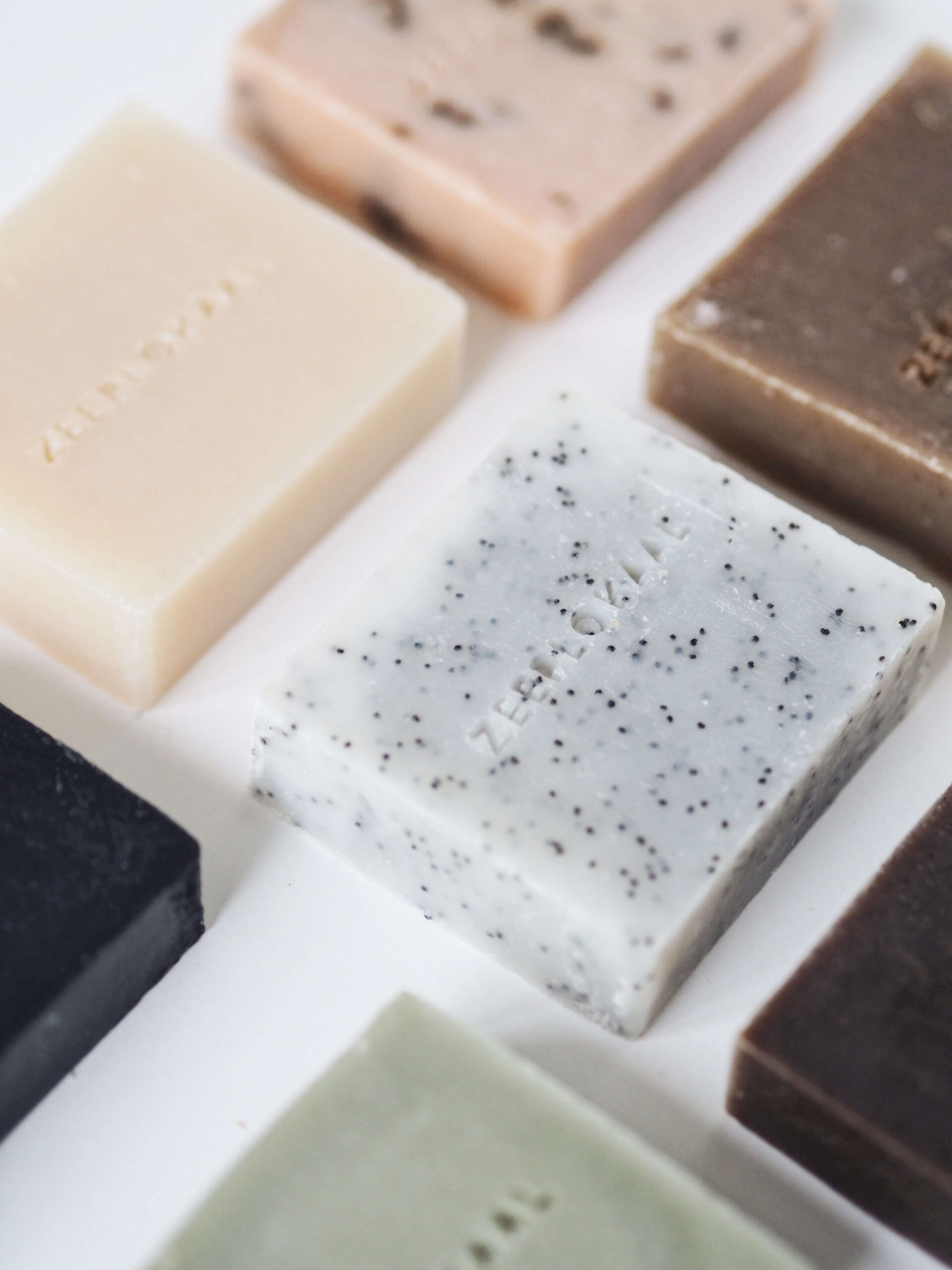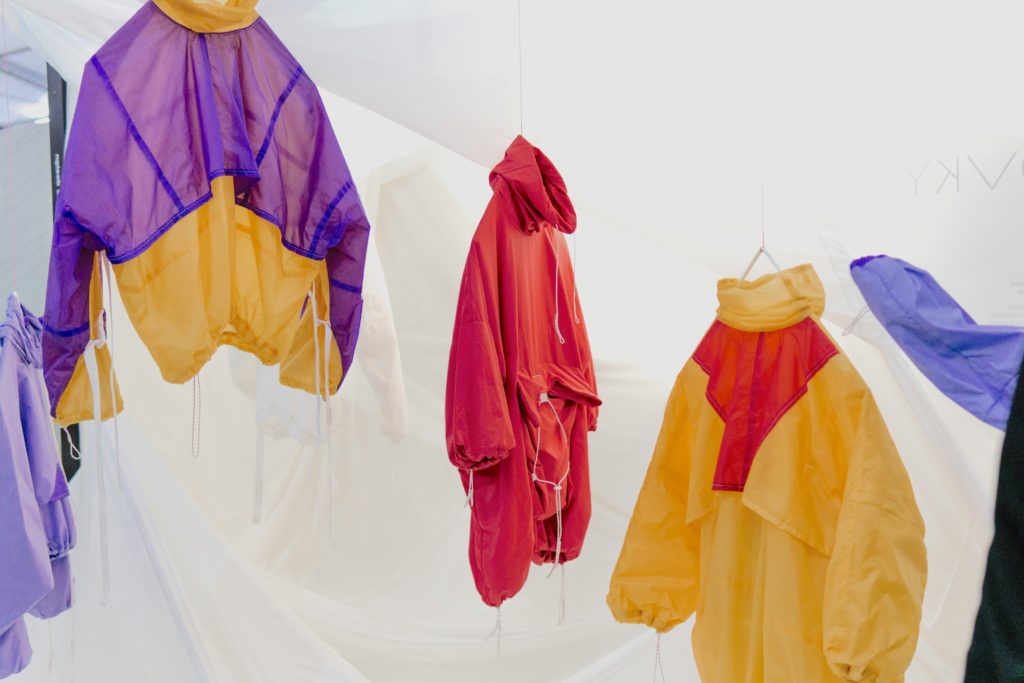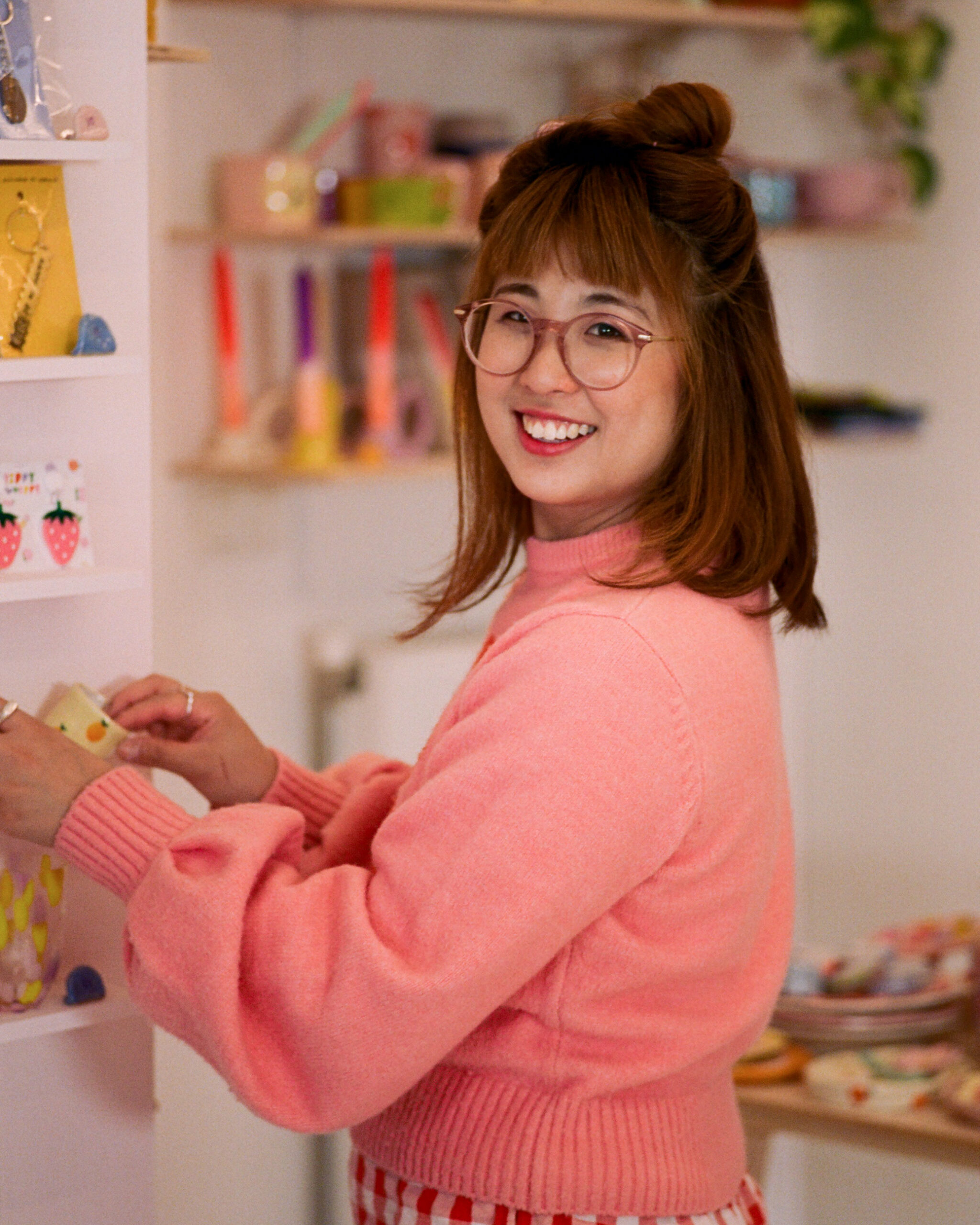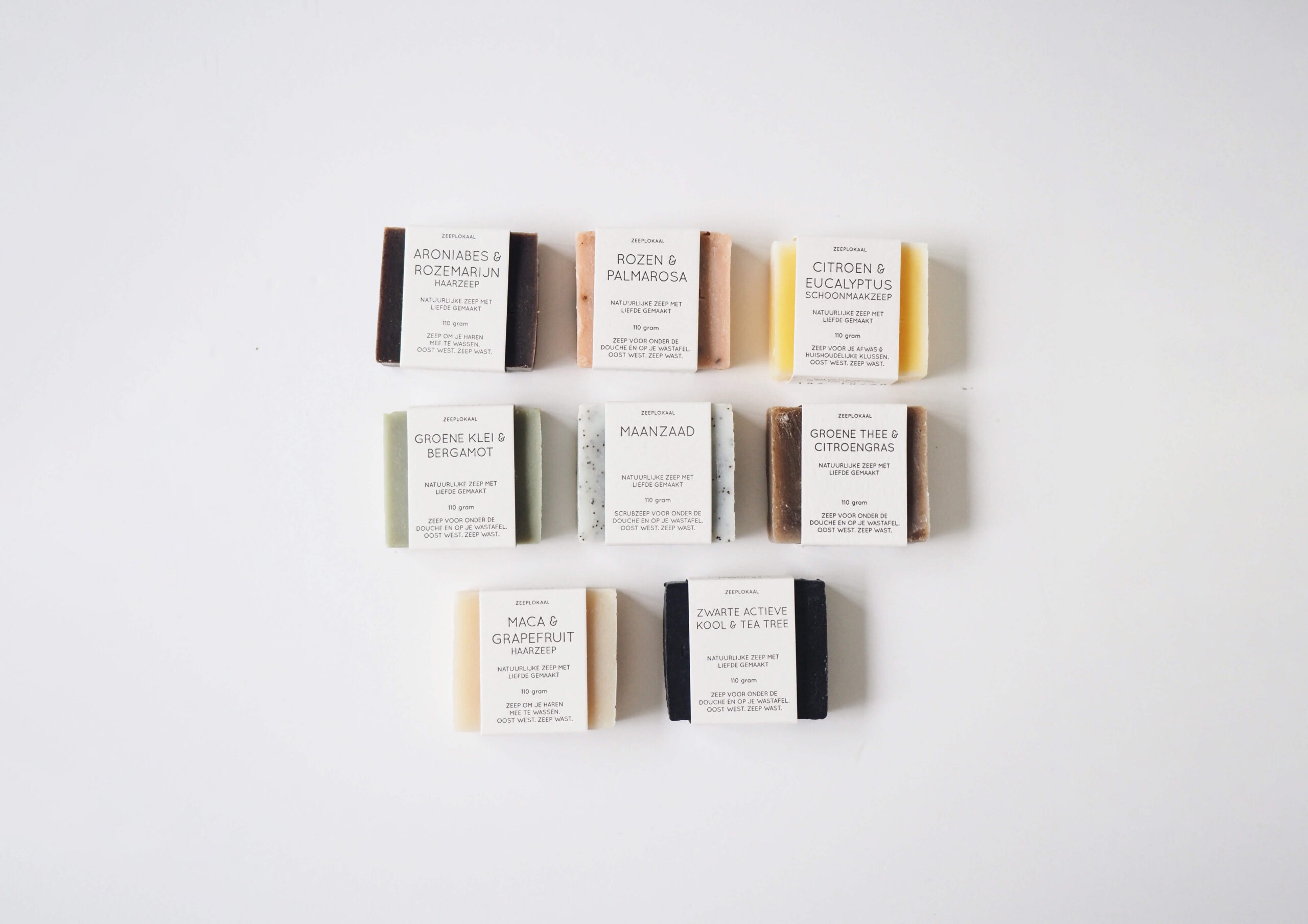
Profiles: Het Zeeplokaal – “At home making soap in a baking tray, that’s how it started.”
Every few weeks we interview an inspiring entrepreneur or artist chosen from our online network, Profiles. This week: Het Zeeplokaal.
A little over two years ago Thijske Noordhoek (28) founded Het Zeeplokaal with a jump start. Before she knew it, she sometimes even had to say no to potential clients. In Utrecht-Zuid Thijske hired a shared working space in a former auto repair shop. A place where soap production and business operations blend in to each other.
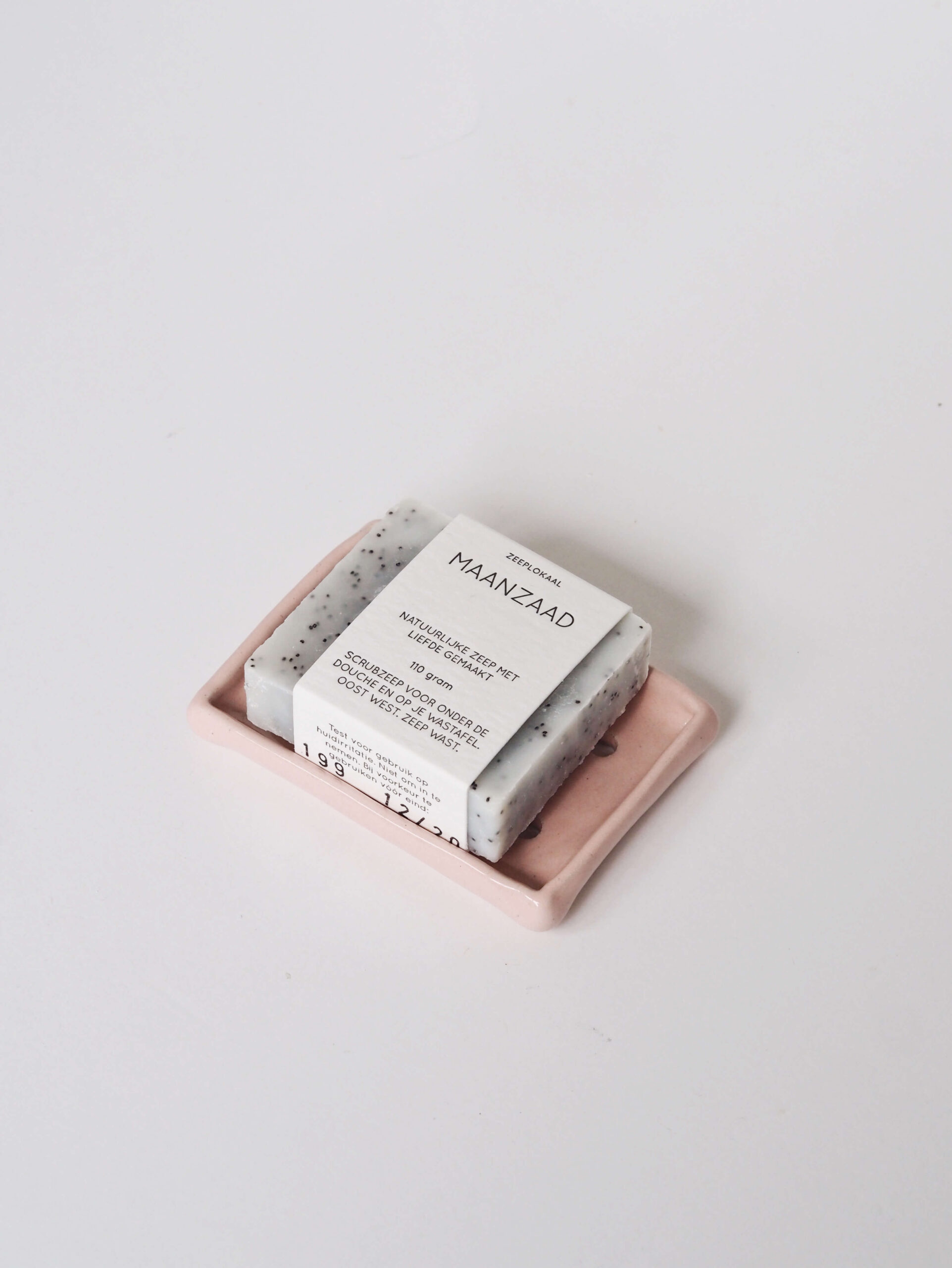
Creating and selling your own soap. How did this come about?
Three years ago I was already quite conscious about the origin of my clothing and starting to be more aware of my food. But regarding beauty care I wasn’t thinking about sustainability at all. At a certain point after a long day of work I just grabbed a bottle of cheap shower gel at the supermarket and it gave me a rash. That’s when I researched the ingredients of soap. That was hard, because the list of ingredients on the back of the bottle is like mumbo jumbo. Googling I concluded that an old fashioned bar of soap is best for your skin. Because of the saponifaction process there is no need for added preservatives. I started to replicate it at home in a baking tray and it felt great to do so. After practicing countless times I thought, maybe I can sell this and that’s how Het Zeeplokaal was created.
What ingredients are in your soap?
You need a type of fat. I only use plant-based oils like: coconut oil, olive oil and almond oil. In addition you can add things like green clay or poppy seed to scrub. Sodium hydroxide causes the saponification process. That might sound like a scary agent, but it’s not. It’s an ingredient that causes the oils to become solid and you get a bar of soap that foams and is anti-bacterial. It takes about six weeks to finish a piece of soap.
What’s wrong with supermarket soap?
Lot’s of soaps contain natrium lauryl sulfaat. It’s an aggressive agent that causes the soap to foam. It might not always affect your skin, but there is no need to wash yourself that thoroughly. You can just as well cleanse yourself using a milder product. Furthermore liquid shampoo or soap cause unnecessary plastic waste. The content of these plastic bottles is mostly water. A bar of soap is compact and therefore more efficient in logistics.
Why is it that most soaps contain this agent?
Manufacturers produce large amounts of soap at a time. Agents like natrium lauryl sulfaat are added to create the effect of foam in a cheap and fast way. They actually take a short cut in the production process.
How do you sell an old fashioned bar of soap in 2020?
I think nowadays people are more conscious about how they can be more sustainable in their households and beauty routine. So that’s positive. On the other hand I sometime get questions about whether or not a soap bar is hygienic. During the rise of liquid soap in the eighties there was this marketing campaign that suggested bars of soap could spread bacteria. But the composition of soap doesn’t allow bacteria to survive on a bar of soap. It does feel like a challenge to bring across all the benefits of an old fashioned bar of soap. I try to do that in a subtle way through my social media and website.
Do you have competition?
In the Netherlands there are a couple of companies that produce artisanal soap. And I’m happy for it, because this way our message is spread through multiple channels. I try to distinguish myself by solely using vegan ingredients for the soap.
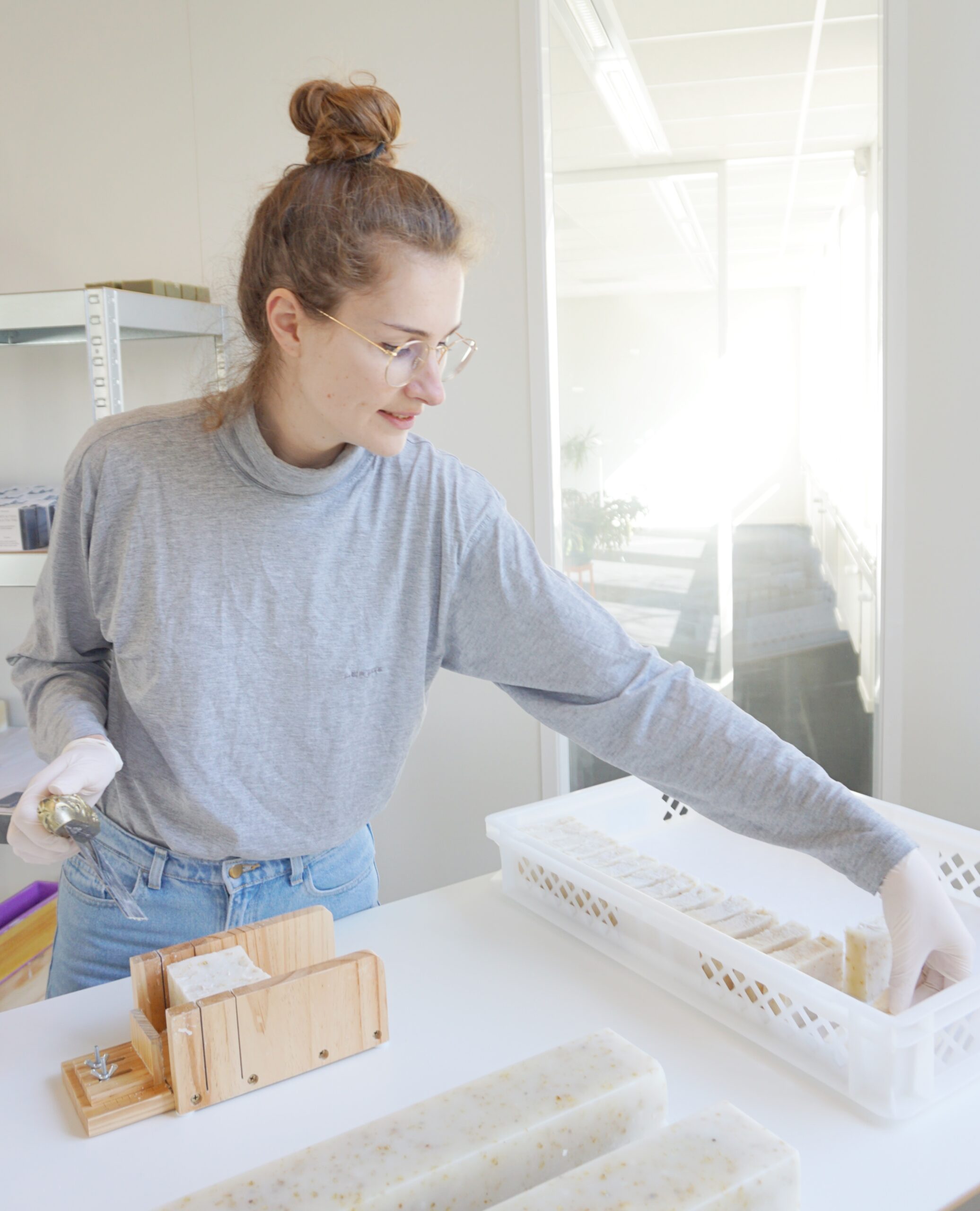
Can we find Het Zeeplokaal in stores already?
We now have sixty to seventy physical points of sale throughout the country. Belgium is now starting to run as well. There even are some selling points in Lithuania and Italy. A store in the Netherlands you might know that sells our soap is Hutspot.
You’re running your business since 2017, how are you enjoying it?
I’m enjoying it a lot, but it is quite a roller coaster. From the start the freedom took some getting used to, finding a rhythm. But eventually I grew into it. It’s nice not having to look at the clock. The other thing that took some getting used to was saying no. I had a flying start, which of course is great, but because I like to meet demands it started to get too much. I learned that it’s not a crime to say: ‘I can’t deliver right now, but I can in three weeks.’
What went better than you expected in your entrepreneurship?
How well everything goes. I can sometimes be a pessimist thinker: ‘What if people won’t like the soap?’ But people regularly send me messages through mail and social media saying they are very happy with my products. That’s always a joy to read.
Is there anything you would do differently knowing everything you know now?
I would make a clear planning beforehand regarding the logistic process. And I wouldn’t determine my sales prices based on what my competitors are doing. I learned it’s best to determine your price based on your costs. Sometimes a shipment gets lost or insurance won’t pay. Also living in the Netherlands is relatively expensive. You should take all those things into account when you calculate the pricing of your product.
Are there good things lying ahead business wise?
Unfortunately I can’t tell you about that, haha. But there are conversations with a large company that has national coverage.
What does success mean to you?
It may sound very plain, but it might be the core of success in my opinion: making a product that people can enjoy and a steady growth of the company. Also I would like to see how far I can get with Het Zeeplokaal with as little means as possible. I like to build up the company without investors or crowd funding. That’s what success is to me.
Website: zeeplokaal.nl
Instagram: zeeplokaal
Written by: Sidney Steinmann
Translation by: Renée ter Berg
